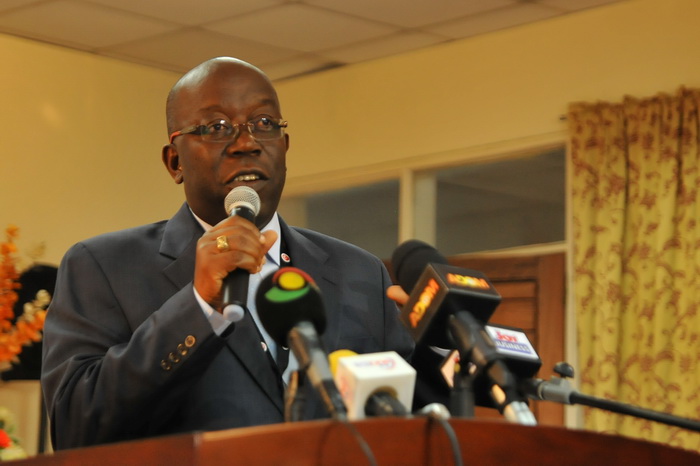
SSNIT funds safe - Director-General
The Social Security and National Insurance Trust (SSNIT) has assured pension contributors that their investments with it are safe, secure and healthy.
It has also indicated that in the last four years, management has been working assiduously to ensure that all the legacy issues, most of which bordered on investments in commercial and residential properties that affected the future of the scheme, are addressed.
The Director-General of SSNIT, Dr John Ofori-Tenkorang, gave the assurance in an interview with the Daily Graphic in Accra yesterday in response to some concerns raised in the Auditor-General's report for 2019.
Advertisement
New Pension Act
For instance, with regard to the query about some pensioners aged between 72 and 75 under PNDC Law 247 and Act 766, the new Pensions Act, who were still receiving their pensions, Dr Tenkorang noted that it was not accurate.
“Rather, since the last four years, we have been able to work to delete ghost names from our payroll, which resulted in the trust saving more than GH¢144 million as of the end of 2020,” he said.
Advertisement
He said measures, including biometric verification of pensioners, had helped in that process and gave an assurance that, more work was being done to ensure that the payroll was completely devoid of ghost names in order to fully protect the contributions of workers on the scheme.
With regard to bonds the trust purchased from Kings University, he said the GH¢7.65 million had been fully settled as of February 17, 2021, and “therefore, there is no issue there at all to be of worry to the contributing public”.
Reports indicated that the trust engaged the university and settled on the negotiated figure which was settled through a land/debt swap arrangement.
Areas of concern
Dr Ofori-Tenkorang said the area of concern to the management and board of the trust had been SSNIT's exposure in the area of real estate, commercial and residential property market.
For instance, as of the end of October 2020, SSNIT's total exposure to the real estate sector was 30.34 per cent.
That meant that of all the investments made by the trust, a little over a quarter of it was into real estate and commercial properties, contracts of which were awarded before 2016.
According to Dr Ofori-Tenkorang, after identifying the level of exposure in that area of the trust's business, the board, under the then chairmanship of Dr Kwame Addo-Kufuor, swiftly ordered a value for money audit of all joint venture projects involving SSNIT.
“Based on that, we were able to renegotiate some of the projects, and out of that we were able to save about GH¢246 million, which went back into the kitty of the trust for the benefit of contributors,” he said.
He said management also came up with a policy on its investments that had a target to reduce the trust's exposure to the real estate sector to just about 10 per cent.
“This, I must say, is work in progress, and much as it is a tough task for us because of the nature of the investments made in the past, we are working around the clock to get there and we will,” he said.
Dr Ofori-Tenkorang further explained that investments made in the sector after 2016 were all meant to complete projects which had stalled midway and which could not be sold at their current state or were totally ignored because of the losses that would have been incurred.
He mentioned, for instance, the Asokore Mampong Housing project, now named the Osei Tutu II Housing Estate, which was now selling to realise some cash for the trust.
Others included the Borteyman Housing Project, most of which had been completed and was selling at rates that were of value to the scheme, he added.
Exposure in listed equities
With regard to SSNIT's exposure to the financial services sector, particularly in banking, Dr Ofori-Tenkorang said until 2018 and 2019 when the banks were asked to recapitalise, they were returning good dividends to the trust.
He expressed the hope that with the process completed and the dark clouds of the financial sector crisis over, returns on investments in that area would bounce back.
When it came to investments in companies listed on the stock market, the SSNIT Director-General said returns were purely based on the performance of the local bourse.
“However, we are confident in the market and we hope that once the stock market bounces back, we will make some returns as usual,” he pointed out.
Dr Ofori-Tenkorang reiterated the commitment of the management of the trust to ensure that the contributions of workers to the scheme were well managed to ensure its sustainability.
